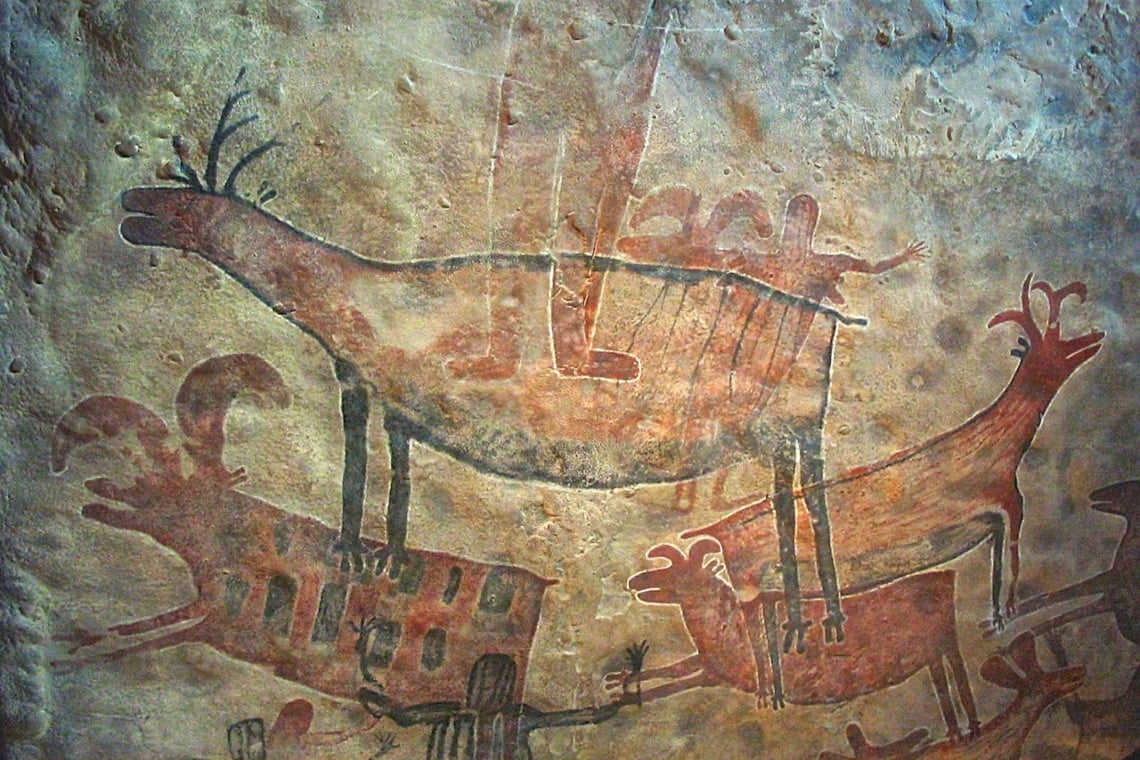The Neanderthals, who about 64,000 years ago painted the first chronicles of life on the walls of the caves of La Pasiega and Maltravieso, started the longest and most crisis-free profession in our history: the narrator.
Today, some time later and with much news to report on, they are still the most sought-after professionals on the market. The reason for this is quite simple and verifiable on a daily basis. Our life is based on successful narratives. Economics, politics, philosophy and even science and technology cannot be separated from a good story that describes them and makes them shareable by the community. Do you think it is different for blockchain and cryptocurrencies? I don’t think so.
It is clear that the success of the token economy and the blockchain is a clash between old successful narratives and new stories that are able to fascinate and win the trust of a large mass of potential users. But I’m not talking about marketing.
Let’s take the part of the narrative related to the blockchain and the cryptocurrency that, so far, has been the most successful. Yes, that’s right, Bitcoin. Digital gold.
The most popular and famous currency of this “new world” has captured a very successful narrative in order to enter the hearts and digital wallets of most of its owners.
Gold, the physical kind, is a successful narrative conventionally accepted by everyone, all over the planet, at different times throughout the history of mankind. Silver, copper and platinum, to mention the most famous, may very well have been the king of precious metals for the same reasons.
Adopting the gold – bitcoin parallelism is a winning approach because it translates the characteristics of one into the other and creates bold but coherent metaphors to convey the value of the new digital currency.
To begin with, the term “mining” refers to the physical excavation in mines. The pickaxe, the shovel and the mechanical force are easily transposable in the work of the PCs, the electricity and the software that “mines” the precious strings, which represent the financial asset, in the complex mines of mathematical formulas.
Clever, and commercially successful, to recall the basic characteristic of “rarity“. Like for gold, also for bitcoin it has been strongly underlined how the number will be artificially limited with the twofold result of protecting its value and stimulating the purchase.
Am I the only one who thinks that the clear success of bitcoin on the other proposals derives not only from its intrinsic validity but also from the effectiveness of this story?
I think the difficulty will be to overturn other universally shared and very strong narratives. The priority will be the banks. Weird entities. Everyone hates them and considers them guilty of wrongdoings and real crimes against humanity and yet it seems impossible to make a commercial transaction without having a bank as trustee.
But narratives do not have to be drowned in common sense: do we want to talk about the world of fashion and the creation of value in that area?
Being able to narrate in a convincing way, so convincing as to win the trust of the masses of consumers, with concepts like “validation of blocks”, “cryptographic guarantees”, “absence of intermediaries”, requires building completely new stories in which trust is built, literally, one brick at a time but in a few minutes. A whole paradigm to overturn.
The introduction of debit cards into the cryptocurrency world will act as a battering ram. A means already established for several generations that could tempt many to use it and start spreading the technical issues that are more difficult to understand. Maybe looking for a vocabulary that avoids the obsessive use of bumper codes such as DeFi, EVM, Hodl, PoW and so on.
Successful narratives need to be accessible and we all want this one to reach the Oscars. I believe that the whole community must make the effort to create a narrative that can be shared even by those who do not have the technical knowledge necessary to create an autonomous vision and try to include in everyday life with the stories that the blockchain creates and, above all, will create in our lives tomorrow. It is an informative and imaginative work, challenging for every narrator.
The new mission for those who want to support the growth of these technologies will be to tell a craftsman how the purchase of a machine or access to long-term credit will be guaranteed by a community of people from all over the world who contribute to his desire to work and grow and no longer by an expensive bank, which is not very transparent in its judgments and practices.
Are we going to be able to make a retired person passionate about the story of how, by making his savings available on a decentralized platform, he will be able to earn something by helping the real economy? Will we be able to make him understand that he will be able to check whether he is enriching a speculative fund based in a tax haven? How would you like to reassure a family about the actual path that the food they put on the table has taken?
It will no longer be up to a multinational company to self-certify “on trust” the health of its products and the fairness of the prices paid to producers (often violently exploited). This control will be done by people who will participate in an inviolable and incorruptible technology.
Blockchain technology and its infinite applications will bring many benefits to our daily lives and contribute to a more just and participatory society. I believe that the task of the enthusiastic crypto community is to start talking about it now. We need to build narratives that leave traces of this future so that everyone can follow them.
Andrea Michelotti



